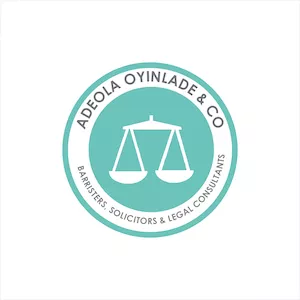- within Corporate/Commercial Law topic(s)
- with readers working within the Advertising & Public Relations, Retail & Leisure and Law Firm industries
- within Corporate/Commercial Law, Insurance and Real Estate and Construction topic(s)
What Is Share Acquisition?
At its core, acquiring a share means buying or otherwise obtaining an ownership stake in a company. Shares (also called "stock" or "equity") are pieces of ownership. When you acquire shares, you gain rights to the company's profits and a say in its affairs (like voting at meetings). Under Nigerian law, a share is personal property transferable under a company's articles. In simple terms, acquiring shares is like buying a slice of a business.
Acquisition can happen in different ways: you might buy shares from existing owners, subscribe for newly issued shares, receive shares in a merger, or even get shares through a rights offering. Regardless of the method, Nigerian law provides clear rules on how to issue, transfer, and record shares.
Key Laws and Regulations
Nigerian share acquisitions are governed by several laws and regulations such as:
Companies and Allied Matters Act (CAMA) 2020: This is the cornerstone of company law in Nigeria. CAMA sets rules for how companies' issue and transfer shares, maintain share registers, and meet formalities. For example, CAMA provides that companies must offer new share issuances first to existing shareholders (a "pre-emptive right").1 It also requires that share transfers be made by a formal written instrument and recorded in the company's register.2 Any allotment of new shares must be filed with the Corporate Affairs Commission (CAC) within one month.3
Investment and Securities Act (ISA) and SEC Rules: The ISA (most recently amended in 2025) and the rules of the Securities & Exchange Commission (SEC) regulate the buying and selling of shares in public companies and the capital markets.
SEC Rules and NGX Listing Rules: Beyond statutes, the SEC issues rules (e.g. on takeovers, private placements, public offerings) that must be followed by companies. NGX rules also require listed companies to notify the market of any new share issues, dividends, or substantial changes in ownership.
Foreign Exchange and Investment Regulations: The Central Bank of Nigeria (CBN) regulates foreign exchange. Under the Foreign Exchange (Monitoring and Miscellaneous Provisions) Act and CBN guidelines, funds brought into Nigeria for investment must be registered through authorized banks. Crucially, Nigeria generally allows free entry and free exit for foreign acquisition of shares in the country.4
Other regulations: If the target company is in a regulated industry (e.g. banking, insurance, pensions), sector regulators (CBN, NAICOM, PENCOM, etc.) may also need to approve large share acquisitions. Competition law may also be applicable where a large share acquisition may require FCCPC clearance if it triggers merger thresholds.
How Shares Can Be Acquired
Nigerian law recognises several common ways to acquire shares
- Subscription (Buying Newly Issued Shares)
Here, the company creates and sells brand new shares when raising capital to fund operations or expansion. When a company issues new shares, existing shareholders typically have pre-emptive rights meaning they get the first opportunity to purchase these shares in proportion to what they already own. For example, if you own 10% of the company, you have the right to buy 10% of the new shares before outsiders can. These pre-emptive rights can be waived if the company's articles of association allow it, or if shareholders vote to waive them.
Subscription is usually applicable where a company initiates Initial public offerings (IPOs), capital raising rounds, startup funding rounds.
- Private Purchase (Transfer from Existing Shareholder)
In a private purchase, you buy shares from someone who already owns them, rather than from the company itself. Negotiation is done directly with an existing shareholder and agree on a price through a share purchase agreement. The transfer must be documented using an instrument of transfer5 which both the seller and buyer sign. The company then updates its share register to reflect you as the new owner. Until the transfer is officially registered with the company, the seller remains on record as the legal owner. Companies have the right to refuse to register a transfer if their articles of association permit it. This commonly happens when shares are being transferred to someone outside the existing shareholder group ("outsiders"), especially in closely-held private companies.
- Rights Issues
This is a special type of share subscription reserved exclusively for existing shareholders. The company offers additional shares, but only current shareholders can buy them, usually at a discounted price. You typically receive rights in proportion to your existing shareholding (e.g., one new share for every five you already own). Rights issues allow you to maintain your percentage ownership in the company and avoid dilution. This usually occurs where a company needs to raise capital quickly from its existing shareholder base.
- Private Placements
The company sells shares directly to select investors without making a public offer. The company approaches specific investors (often institutional investors, venture capitalists, or high-net-worth individuals) and negotiates the sale of shares privately. This is faster and less expensive than a public offering because it avoids extensive public disclosure requirements. Despite being "private," these transactions still require full CAMA compliance: proper board resolutions authorizing the issuance, updating the register of members, and filing with the CAC.
- Mergers & Acquisitions (M&A) / Takeovers
This involves acquiring a significant stake or full control of a company through share purchases or exchanges. It can occur in the following instances:
- Negotiated purchase: You negotiate to buy a controlling stake (often 51% or more) directly from existing shareholders.
- Share exchange: One company issues its own shares as payment to acquire another company's shares (common in mergers). For example, Company A might give its shareholders two shares for every one share of Company B they acquire.
- Takeover bid: For public companies, you might make a formal offer to all shareholders to buy their shares, usually at a premium.
Transactions above certain thresholds require approval from the Securities and Exchange Commission (SEC) and clearance from the Federal Competition and Consumer Protection Commission (FCCPC) to ensure fair competition. Public takeovers must comply with the SEC Rules and Regulations, including mandatory offer requirements when certain ownership thresholds are crossed.
- Other Methods of Acquiring Shares
Gift
Shares can be transferred as a gift. The donor must execute a proper instrument of transfer, and the company must register the transfer. Some companies' articles may restrict gifts to outsiders.
Inheritance
When a shareholder dies, their shares pass to their heirs according to their will or intestacy laws. The personal representative (executor/administrator) must produce the necessary legal documents (grant of probate or letters of administration) for the company to register the new owner(s).
Share Buybacks and Redemptions
A company may purchase its own shares from existing shareholders (subject to strict conditions under CAMA, including solvency requirements and proper authorization). Some companies issue redeemable shares that can be bought back by the company at a predetermined time or price.
Who's Involved: Regulatory Bodies
Multiple agencies oversee share transactions:
- Corporate Affairs Commission (CAC): The CAC registers companies and corporate filings. It requires companies to file certain forms when shares are issued or capital is changed. ownership must ultimately be reflected in the company's statutory books (which the CAC can inspect).
- Securities and Exchange Commission (SEC): The SEC regulates the capital market. It oversees public offerings, private placements, corporate disclosures, and takeover bids.
- Nigerian Exchange Limited (NGX): The NGX (formerly NSE) enforces listing rules for quoted companies. Listed companies must report any share issues, transfers of significant stakes, or changes in share capital to the NGX.
- Federal Competition & Consumer Protection Commission (FCCPC): The FCCPC (Nigeria's antitrust regulator) reviews large mergers or acquisitions that meet thresholds. If a share acquisition constitutes a merger (i.e., gives an investor significant control and/or if companies' combined turnover/market share crosses a set threshold), FCCPC approval may be required.
- Central Bank of Nigeria (CBN): Through its Exchange Control department, the CBN ensures foreign currency transactions comply with the law. Any foreign capital inflow for buying shares must be routed through authorized dealers with a CCI. The CBN also oversees banks and financial institutions, so if the target is a bank or microfinance bank, CBN approval would be necessary for a share acquisition.
- Industry Regulators: Other regulators may be involved if the company is in a special sector. For instance, the National Insurance Commission (NAICOM) must approve changes in shareholding of insurance companies. The National Pension Commission (PenCom) does so for pension fund administrators. Each regulator has its own procedure for vetting new owners.
Key Considerations and Practical Steps
When planning a share acquisition, investors and company owners should keep in mind:
- Due Diligence: Carefully review the company's corporate records and financials before buying shares by conducting a corporate search on the company. Confirm that all past share issues were properly approved and filed with CAC (per CAMA). Check the share register to ensure the shares exist and to verify any restrictions in the articles (e.g. rights of first refusal on transfer). Legal searches (for encumbrances, litigations, or regulatory sanctions) are also advisable.
- Documentation: Prepare clear agreements. A share purchase agreement should cover price, payment, conditions, and warranties. If acquiring new shares via subscription, board/ shareholder resolutions are needed. For takeovers, follow SEC requirements for bid documentation. In all cases, ensure share transfer forms and board minutes are correctly executed.
- SEC and CAC Filings: Remember to file required forms. Issuing new shares (or doing a rights issue) requires CAC filings.
- Foreign Ownership Restrictions: Generally, Nigeria permits 100% foreign ownership in most sectors. The exceptions are few (e.g. local content rules in oil). Always confirm the sector-specific rules.
- Payment and Repatriation: When funds cross borders, use official channels. The Central Bank requires that foreign currency used to buy shares be brought into Nigeria through authorized banks with full documentation (the CCI). Profits (dividends or sale proceeds) can be repatriated freely through the formal market, as long as taxes are paid. Always keep records (CCI, contracts, and bank documents) to avoid difficulties later.
- Get professional help: Share transactions involve legal documentation, valuation issues, tax implications, and regulatory compliance. Always consult legal and financial advisors before proceeding.
Footnotes
1 Companies and Allied Matters Act, section 142.
2 Companies and Allied Matters Act, section 175.
3 Companies and Allied Matters Act, section 154.
4 Section 26 of the Foreign Exchange (Monitoring and Miscellaneous) Act, 2004.
5 Companies and Allied Matters Act 2020, section 175.
The content of this article is intended to provide a general guide to the subject matter. Specialist advice should be sought about your specific circumstances.


